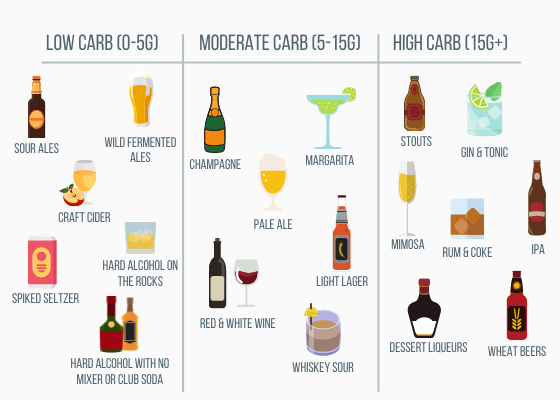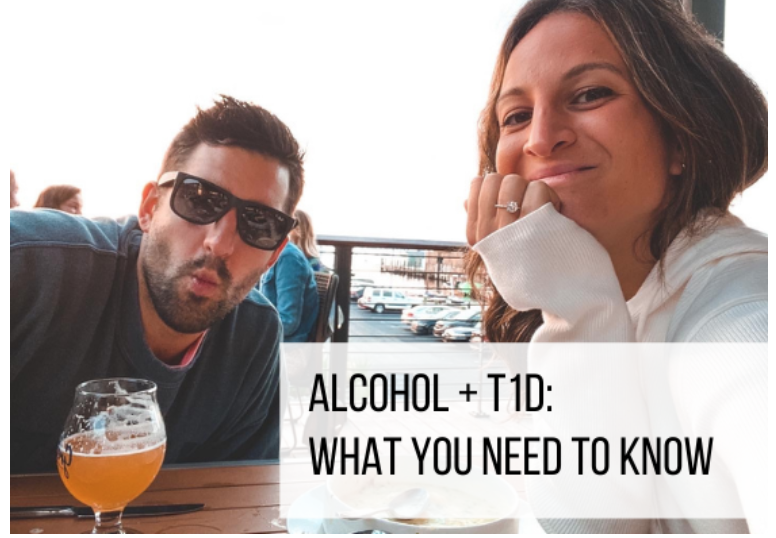Have you ever noticed, after enjoying happy hour with friends (that inevitably turns into dinner and several more drinks), your blood sugar is out of control? You’re not alone. Booze and blood sugars might appear to work in mysterious ways, but there are a few tips that will help you feel more confident next time you throw back a cocktail.
Alcohol can cause blood sugar to rise and/or fall
As with most elements of diabetes, everyone is different. What happens in one body might not happen in another. You will have to do some testing and learning to figure out your own reactions. However, there is general information that applies to everyone.
Is alcohol a carb?
- Some alcoholic beverages contain carbs: beer, dessert wines, wine coolers, hard lemonade, frozen drinks, and most mixed drinks. These will most likely raise blood sugars short term. You won’t see that immediate rise from hard liquors such as tequila, whiskey, gin, vodka, and rum.
- Consider all of the ingredients in your beverage. Are you using sugary juices and sodas or diet/low carb mixers? Club soda with fresh squeezed lemon and lime is an easy and refreshing carb-free option!
When “shots, shots, shots!” turns into “snacks, snacks, snacks!”
- While there’s no shame in the munchies game, it can be harder to know how much you are eating and accurately calculate carbs when you’re a little buzzed. This can lead to waking up with a high blood sugar the next morning, which feels like a double hangover.
- How can you snackergize for your next wine night? Consider sipping libations over a full meal to curb overwhelming hunger later on.
Drop it low without dropping too low
- Alcohol has a tendency to lower blood sugars several hours later. When you bolus to cover the carbs in your drinks, also be aware of the possibility that you may drop low a few hours later. Also take into account any walking or dancing that will impact your insulin sensitivity!
- Pay attention to how your body reacts after certain drinks. Increased insulin sensitivity can last up to 24 hours after consuming alcohol.
There are ways to enjoy alcohol without losing control of your diabetes. Getting familiar with how your body responds to different beverages will help you plan ahead and adjust accordingly whenever you choose to partake. T1D or not, remember to consume water along with your alcohol and consider explaining to the ones you’re with how drinking usually impacts your diabetes so that they can be supportive of your choices.


Be the first to comment